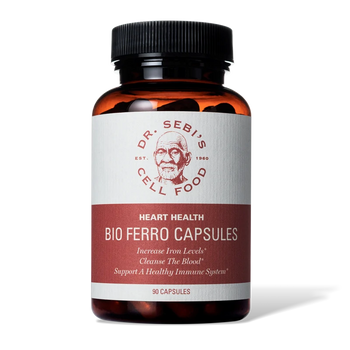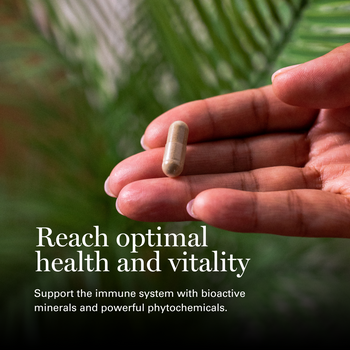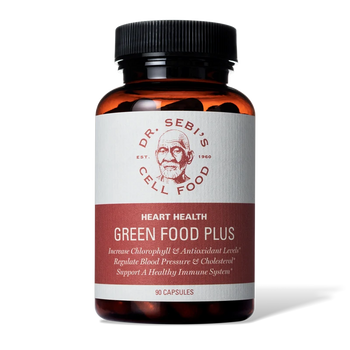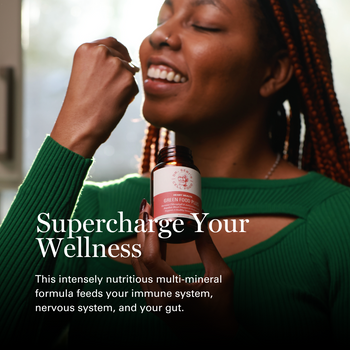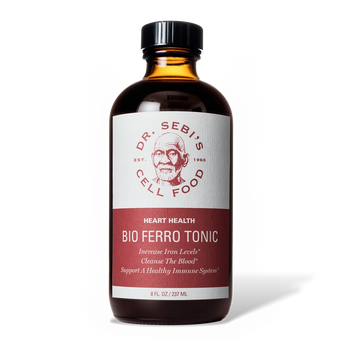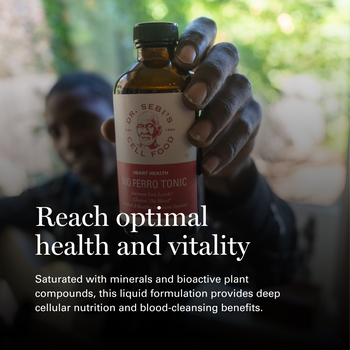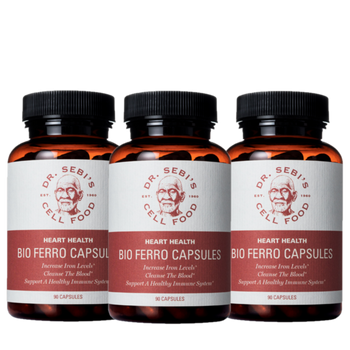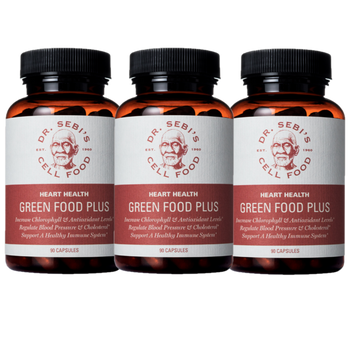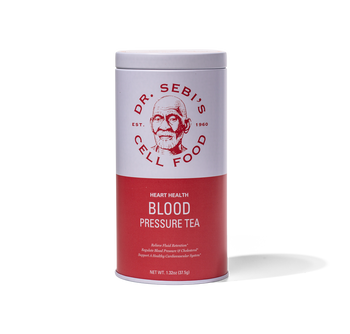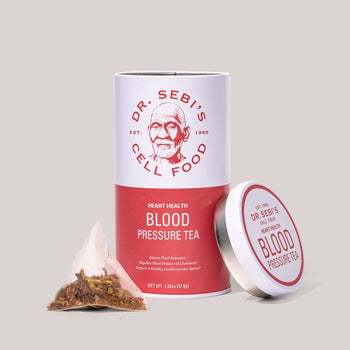Fatigue is one of the most common health complaints today, often described as persistent exhaustion that rest doesn’t fully relieve. While many factors contribute to low energy—stress, poor sleep, dehydration—one of the most overlooked causes is iron deficiency anemia. Iron is essential for producing hemoglobin, the protein in red blood cells that carries oxygen throughout the body. Without enough iron, oxygen delivery slows, and energy levels plummet.
Conventional approaches to anemia often focus on synthetic supplements or animal-based sources of iron. Yet these are not always well-absorbed and can sometimes cause side effects. Dr. Sebi’s approach emphasizes a natural, plant-based alkaline diet to restore iron levels while supporting the body’s overall vitality. By choosing iron-rich alkaline foods, we can replenish the blood, strengthen energy, and maintain cellular balance naturally.
Understanding Fatigue and Anemia
What is Fatigue?
Fatigue is more than just being tired after a long day. It is a chronic state of weariness that affects motivation, concentration, and physical performance. People often describe it as a “heavy” feeling, as though the body lacks fuel to function.
Iron Deficiency Anemia
The most common nutritional cause of fatigue worldwide is iron deficiency anemia. It occurs when the body does not have enough iron to produce healthy red blood cells. Without adequate hemoglobin, tissues don’t receive enough oxygen, leading to:
-
Weakness and tiredness
-
Pale skin
-
Dizziness or lightheadedness
-
Shortness of breath
-
Cold hands and feet
-
Poor concentration
- Brain Fog
Women of childbearing age, children, and people on restrictive diets are most at risk.
Why Alkaline Foods Matter
Iron alone isn’t enough—how it is delivered to the body matters. Foods that are acidic or heavily processed can interfere with absorption and increase inflammation. In contrast, alkaline foods support mineral uptake, reduce acidity, and nourish the blood.

Iron-Rich Alkaline Foods from the Nutritional Guide
Dr. Sebi’s Nutritional Guide provides a clear list of approved foods to restore balance. Many of these are excellent sources of iron and other minerals that combat fatigue and anemia.
1. Leafy Greens
Leafy greens are foundational for restoring iron. The following greens are fully approved:
-
Kale: Rich in iron, calcium, and antioxidants, kale supports blood production and detoxification.
-
Amaranth greens (Callaloo): A powerhouse green with high levels of iron and magnesium.
-
Dandelion greens: Traditionally used as a blood tonic, they stimulate liver function and improve mineral absorption.
-
Watercress and wild arugula: Both are dense in iron and chlorophyll, providing oxygenating and energizing effects.
-
Turnip greens: High in iron and vitamin C, which aids absorption.
2. Ancient Grains
Whole grains provide steady energy and significant minerals, including iron:
-
Amaranth grain: Not to be confused with the greens, the grain is rich in iron and lysine, an amino acid important for blood health.
-
Fonio: A tiny West African grain packed with minerals, including iron and zinc.
-
Kamut and spelt: Nutty-tasting grains that provide iron while being easier to digest than modern wheat.
-
Quinoa: A complete protein that also delivers a healthy dose of iron and magnesium.
-
Wild rice: Contains both iron and antioxidants that protect red blood cells.
3. Fruits for Iron and Energy
Several alkaline-approved fruits are excellent for boosting iron levels while also improving absorption due to their natural vitamin C content:
-
Figs: Known as a blood-strengthening food, figs provide iron, calcium, and natural sweetness.
-
Raisins (seeded): Concentrated in minerals, raisins are an excellent snack to replenish iron.
-
Prunes and dates: Provide iron as well as fiber, supporting digestion alongside energy.
-
Berries: Blueberries, blackberries, and raspberries are antioxidant-rich and enhance circulation.
-
Soursop and papaya: High in vitamin C, which improves the bioavailability of iron in other foods.
4. Nuts and Seeds
Nuts and seeds deliver iron along with essential fats that help transport minerals effectively:
-
Walnuts: Not only rich in omega-3 fatty acids, but also a valuable plant-based source of iron.
-
Hemp seeds: Contain both iron and magnesium, helping reduce stress-induced fatigue.
-
Brazil nuts: Provide iron and selenium, a mineral that boosts immune function.
-
Raw sesame seeds and tahini: Calcium- and iron-rich, excellent for bone and blood health.
5. Vegetables and Sea Vegetables
-
Cucumbers, zucchini, and squash: While not the richest in iron, they support hydration and mineral transport.
-
Sea vegetables (sea moss, dulse, nori, wakame): Some of the most concentrated plant sources of iron and trace minerals, essential for blood and nervous system health.
6. Herbal Allies
Certain herbs approved in the guide help the body use iron more efficiently and calm stress that depletes minerals:
-
Burdock root: Traditionally known as a blood purifier and strengthener.
-
Chamomile: A calming herb that reduces stress, helping preserve iron stores.
-
Elderberry: Provides antioxidants that protect red blood cells.
-
Ginger: Stimulates circulation, aiding nutrient delivery.
The Benefits of Iron-Rich Alkaline Foods
When incorporated consistently, these foods:
-
Boost oxygen transport: Iron supports hemoglobin, ensuring tissues get the oxygen they need.
-
Improve energy and focus: Better oxygenation means sharper thinking and sustained energy.
-
Strengthen the immune system: Iron and antioxidants from fruits and greens help protect against infections.
-
Balance pH: Alkaline foods reduce acidity, creating an environment where minerals are better absorbed.
-
Support detoxification: Many greens (like dandelion) cleanse the liver and blood, enhancing iron use.
Practical Ways to Add Iron-Rich Alkaline Foods
Morning Rituals
-
Alkaline smoothie: Blend kale, grapes, figs, and hemp seeds with spring water for an energizing start.
-
Herbal tea: Begin with chamomile or ginger tea to calm the nervous system and support digestion.
Lunch Ideas
-
Grain bowls: Combine quinoa, wild rice, or fonio with sautéed amaranth greens or kale, mushrooms, bell peppers, and top with avocado and fresh tomatoes.
-
Leafy green salads: Mix dandelion greens, watercress, and arugula with cherry tomatoes and avocado oil.
Snacks
-
Figs, raisins, and walnuts for quick mineral support.
-
Tahini with seeded grapes for iron and calcium.
Dinner
-
Spelt or kamut pasta with kale and zucchini.
-
Steamed wild rice with turnip greens and olive oil.
Evening
-
Relax with tila (linden flower) tea to ease the nervous system and improve sleep—vital for recovery from anemia.
Scientific Support
Studies confirm that plant-based sources of iron, when paired with vitamin C–rich foods, are highly bioavailable. Leafy greens, figs, and seeds supply non-heme iron, which the body absorbs efficiently when the diet avoids inflammatory foods. Research also shows that natural plant compounds like chlorophyll and polyphenols in berries and greens enhance blood quality, reduce oxidative stress, and protect red blood cells.
Dr. Sebi’s Teachings on Iron and Vitality
Dr. Sebi emphasized that health begins with the blood. According to his teachings, iron is the “spark plug” of the human body because it energizes every cell. His approach rejected animal-based iron sources, focusing instead on natural alkaline foods. He taught that when the blood is nourished with iron-rich plants, the body heals, energy flows, and diseases cannot thrive.
"The sarsaparilla is the highest concentrated plant for iron; the most powerful agent to iron in any plant." - Dr. Sebi
Following Dr. Sebi's Food List ensures not only the intake of iron but also the removal of hybrid or acidic foods that disrupt mineral absorption.
Frequently Asked Questions
Can I meet my iron needs without meat or supplements?
Yes. By consistently eating iron-rich alkaline foods like kale, amaranth greens, quinoa, figs, and walnuts, you can meet your needs naturally.
What’s the difference between plant iron and animal iron?
Plant-based iron (non-heme) comes with minerals, antioxidants, and alkalinity that support absorption and healing, without the side effects of animal products.
How quickly will I feel more energized?
Some improvements may be noticeable within weeks, though rebuilding blood stores can take several months. Consistency is key.
Are iron supplements harmful?
High-dose iron supplements can cause constipation, nausea, and oxidative stress. Whole-food sources are safer and provide balanced nutrition.
Do I need vitamin C to absorb iron?
Yes—pairing iron-rich foods with vitamin C–rich fruits (like papaya, soursop, oranges, or key limes) enhances absorption naturally.
Conclusion: Nourishing the Blood, Restoring Energy
Fatigue and anemia are not life sentences—they are signs the body is asking for nourishment. By turning to the foods listed in Dr. Sebi’s Nutritional Guide, we can rebuild the blood naturally. Leafy greens, seeded fruits, ancient grains, nuts, seeds, and herbal allies provide the minerals and vitality needed to restore balance.
Iron is not just a nutrient—it is life force. When we choose alkaline iron-rich foods, we fuel the blood, energize the body, and align with nature’s healing design. True energy doesn’t come from stimulants or shortcuts, but from mineral-rich living foods that support cellular health.
Reclaiming vitality begins with each meal. By embracing alkaline foods, you not only combat fatigue and anemia but also take a step toward holistic healing and long-term wellness.

